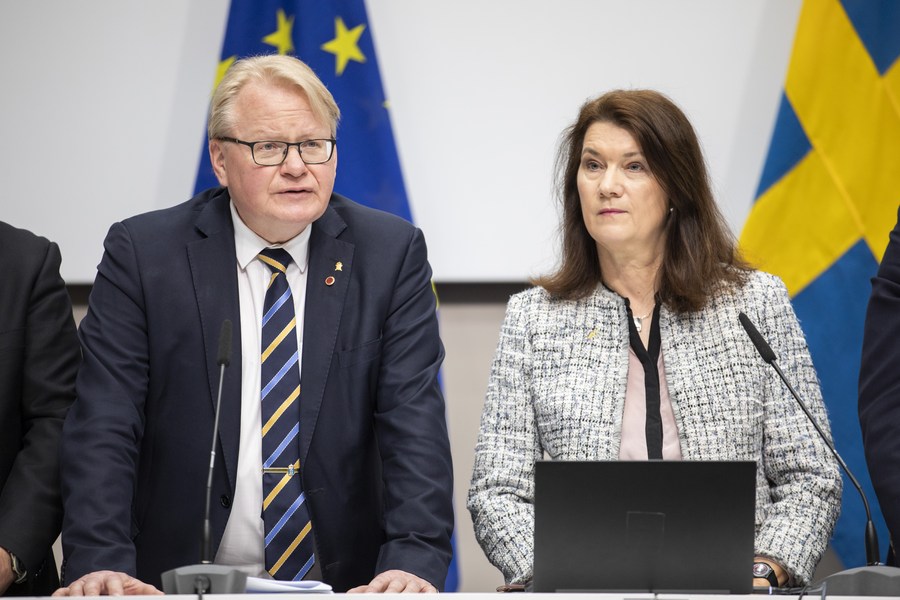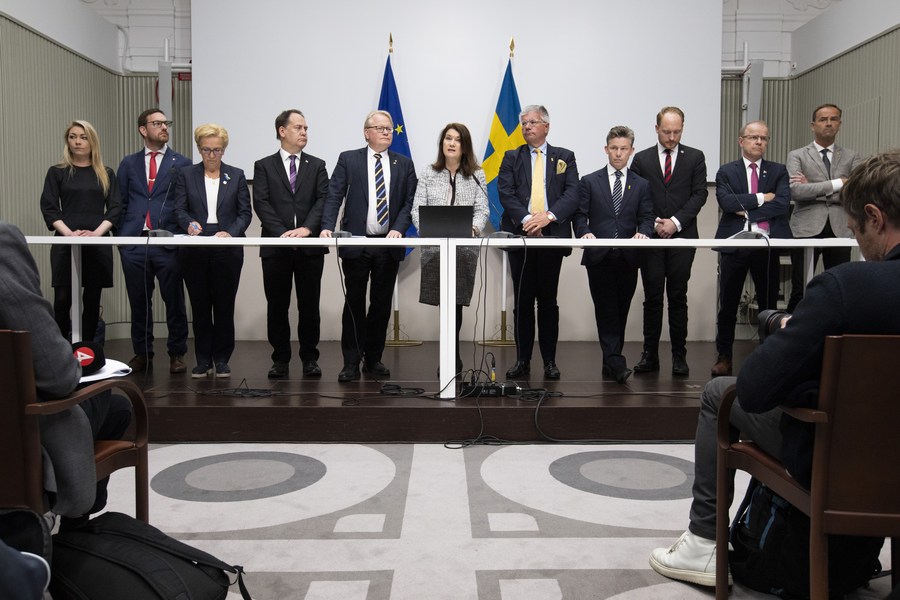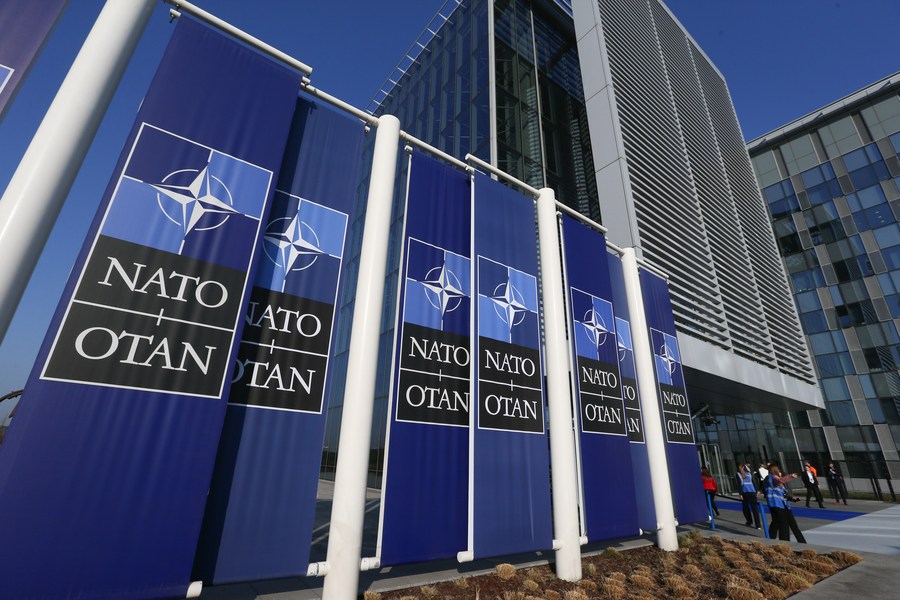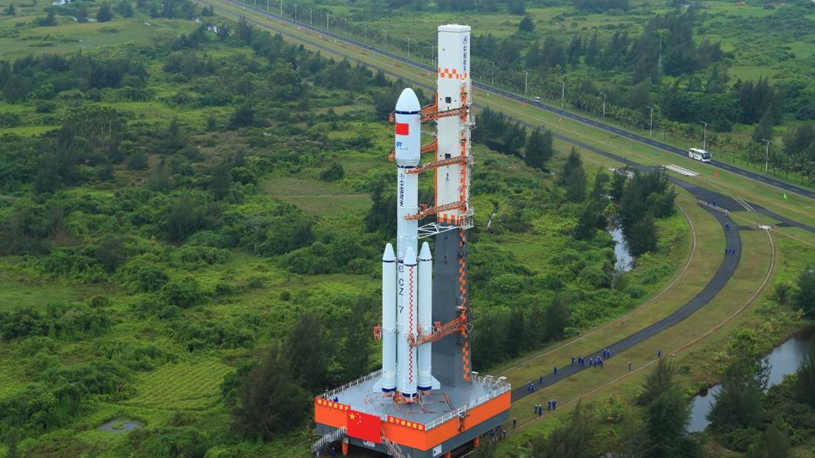
Swedish Foreign Minister Ann Linde (R) and Minister of Defense Peter Hultqvist attend a press conference on a security analysis in Stockholm, Sweden, on May 13, 2022. (Ninni Andersson/Government Offices of Sweden/Handout via Xinhua)
Finland and Sweden have been members of the European Union since 1993, but until now they have been among a small minority of EU member states not part of the NATO military alliance. Once they join, it will leave only four of the EU's 27 member states Austria, Cyprus, Ireland, and Malta -- outside NATO.
ROME, May 14 (Xinhua) -- The likely ascension of Finland and Sweden to the North Atlantic Treaty Organization (NATO) has been sparked by fears in those countries of the ongoing Russia-Ukraine conflict. But analysts said the development could have consequences that go beyond the current crisis.
Finland and Sweden have been members of the European Union since 1993, but until now they have been among a small minority of EU member states not part of the NATO military alliance. Once they join, it will leave only four of the EU's 27 member states Austria, Cyprus, Ireland, and Malta -- outside NATO.
It also means that 24 of NATO's 32 members will be members of the European Union.
Analysts said that the two countries' membership in NATO will strengthen the alliance: both countries are among the world's richest nations, according to World Bank data, and military spending in both countries is broadly in line with NATO averages stated as a percentage of each country's gross domestic product.

Swedish Foreign Minister Ann Linde (6th L), Minister of Defense Peter Hultqvist (5th L) and other parliamentary party representatives present the result of a security analysis at a press conference in Stockholm, Sweden, on May 13, 2022. (Ninni Andersson/Government Offices of Sweden/Handout via Xinhua)
"What this means is that the ties between NATO and the European Union will become even closer," Elena Sciso, an international law professor at Rome's LUISS University, told Xinhua. "Consider that the European Union's Lisbon Treaty from 2009 includes a clause on mutual, collective defense, just as NATO does."
Nicolai von Ondarza, a political scientist and head of the European Union division at the German Institute for International and Security Affairs said Finland and Sweden were never "entirely neutral" when it came to security issues, noting their armed forces already coordinated activities with those from NATO countries and they shared intelligence. Instead, they practiced what he called "armed neutrality" -- meaning they are willing to use military force to maintain their neutrality if needed.
"One of the things this will mean is that the Baltic Sea will now become largely a NATO Sea," von Ondarza said in an interview, referring to the body of water in northern Europe surrounded by Denmark, Estonia, Latvia, Lithuania, Poland, and Germany -- all NATO member states -- in addition to Finland, Sweden, and Russia.
"I also think we will see a policy shift when it comes to foreign and military policy that will shift from crisis management to territorial defense," he said.
According to LUISS University's Sciso, there could be impacts of the move far beyond Europe. She noted that the Arctic Sea -- a nearly unpopulated region without major land mass thought to contain 160 billion barrels of oil and as much as 30 percent of the planet's natural gas is currently administered by eight countries that border it, five of which are members of NATO: Canada, Denmark, Iceland, Norway, and the United States. Once Finland and Sweden join NATO, that number will be seven of eight, with only Russia outside the alliance.

Staff members work at the NATO Headquarters in Brussels, Belgium, March 24, 2022. (Xinhua/Zheng Huansong)
"It's significant because the states that govern the area will be dominated by NATO," Sciso said. "The countries involved are obligated to respect rules agreed to for the region on things ranging from fishing rights to nuclear testing, but they remain sovereign states and two of them are the world's largest nuclear powers." ■












